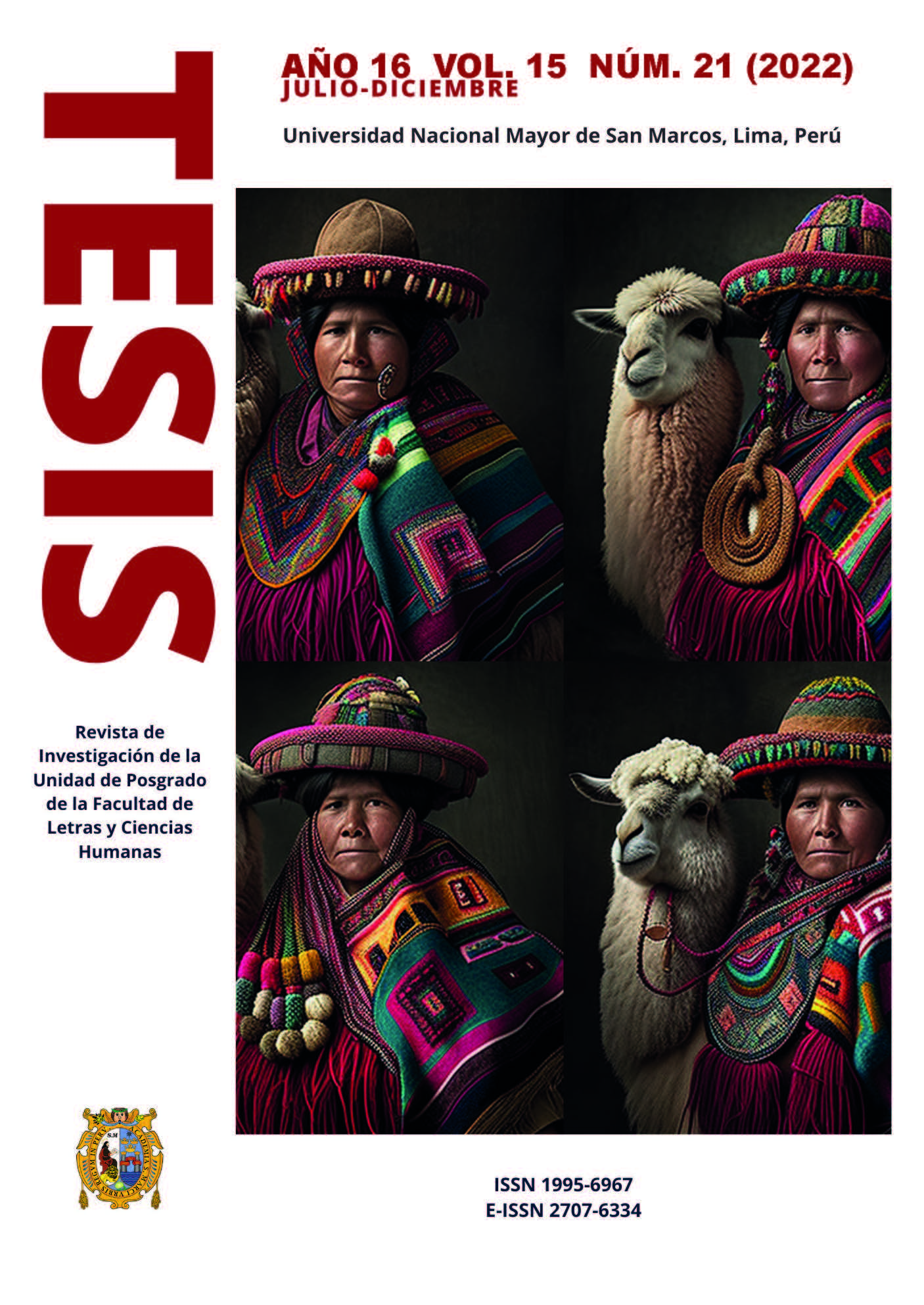Family Court Number 6: Autofiction, complex selfreferentiality and the Real
DOI:
https://doi.org/10.15381/tesis.v15i21.25223Keywords:
autofiction, artistic research, complex selfreferentiality, theaterAbstract
The paper explores the relationships between autofiction, scene and the Real based upon the insights generated in the creative process of the theater play Family Court Number 6 —an autofictional play that addresses the relationship between women and the Law in Perú— emphasizing the possibility of trauma as a creating and constructing force. To achieve these goals, on one hand I draw upon premises of artistic research, especially its self-reflective and critical dimensions. On the other hand, I assume autofiction as a narrative strategy that establishes the “self ” as being in permanent construction. Both paths intersect in what I choose to call complex self-referentiality. Finally, I reflect on trauma as the unrepresentable and as a boundary to creative practice.
References
Alberca, M. (1996). El pacto ambiguo. Boletín de la Unidad de Estudios Biográficos, (1), 9-18. https://raco.cat/index.php/bueb/article/view/378644
Blanco, S. (2018a). Autoficción: una ingeniería del yo. Punto de Vista Editores.
Borgdorff, H. (2010). El debate sobre la investigación en las artes. Cairon: revista de ciencias de la danza, 13, 25-46.
Butler, J. (2007). El género en disputa. El feminismo y la subversión de la identidad. Paidós.
Casas, A. (2012). El simulacro del yo: la autoficción en la narrativa actual. En A. Casas (comp.), La autoficción: reflexiones teóricas (pp. 9-42). Arco Libros.
Chase, S. E., Denzin, N. K. y Lincoln, Y. (2015). Investigación narrativa. Métodos de recolección y análisis de datos. En N. Denzin e Y. Lincoln (coords.), Métodos de recolección y análisis de datos. Manual de investigación cualitativa. Volumen IV (pp. 58-98). Gedisa.
Denzin, N. K. (2017). Autoetnografía interpretativa. Investigación Cualitativa, 2(1), 81-90.
Gutiérrez-Peláez, M. (2013). Vigencia de la concepción psicoanalítica del trauma. Desde el Jardín de Freud, 13, 293-304.
Hannula, M., Suoranta, J. y Vadén, T. (2014). Artistic research methodology. Narrative, power and the public. Peter Lang Inc., International Academic Publishers.
Holman, S. (2016). Autoetnografía, Transformación de lo personal en político. En N. Denzin e Y. Lincoln (coords.), Métodos de recolección y análisis de datos. Manual de investigación cualitativa. Volumen IV (pp. 262-315). Gedisa.
Lacan, J. (1987). Los cuatro conceptos fundamentales del psicoanálisis. Paidós.
Sánchez, J. A. (2013). In-definiciones. El campo abierto de la investigación en artes. Artes la Revista, 12(19), 36-51.
Sanfelippo, L. C. (2010). Conceptualizaciones del trauma en Freud y Lacan. II Congreso Internacional de Investigación y Práctica Profesional en Psicología. XVII Jornadas de Investigación. Sexto Encuentro de Investigadores en Psicología del Mercosur. Universidad de Buenos Aires.
Stavrakakis, Y. (2007). Lacan y lo político. Prometeo Libros Editorial.
Tossi, M. (2015). Docudrama y autoficción en el teatro argentino de la posdictadura. Pasavento, Revista de estudios hispánicos, 3(1), pp. 91-108.
Ubilluz, J. C. (2006). Nuevos súbditos. Cinismo y perversión en la sociedad contemporánea (Vol. 3). Instituto de Estudios Peruanos.
Vich, V. (2021). César Vallejo. Un poeta del acontecimiento. Horizonte.
Downloads
Published
Issue
Section
License
Copyright (c) 2023 Tirso José Causillas Fonseca

This work is licensed under a Creative Commons Attribution 4.0 International License.
THE AUTHORS RETAIN THEIR RIGHTS:
(a) The authors retain their trademark and patent rights, and also on any process or procedure described in the article.
(b) The authors retain the right to share, copy, distribute, execute and publicly communicate the article published in Tesis (Lima) (in example, depositing the article in an institutional repository or publish it in a book), with recognition of its initial publication in the Tesis (Lima).
(c) The authors retain the right to make a later publication of their work, to use the article or any part of it (for example: a compilation of their works, notes for conferences, thesis, or for a book), provided that they indicate the source of publication (authors of the work, magazine, volume, number and date).














